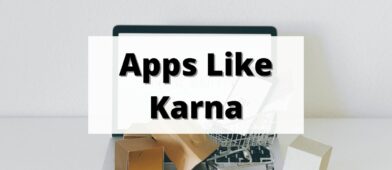We all know that if you want to save money, you need to have a budget.
But budgeting isn’t fun.
Budgeting kinda sucks.
But what if I told you that a budget is what will set you free?
If you ever feel guilty about spending money, a budget can remove that guilt.
If you ever feel bad about how little you’re saving, a budget can erase that feeling.
And with all the new budgeting tools available, budgeting can be painless.
Long ago, your only option was to purchase similar budgeting software like Quicken.
But it feels silly to spend money to save money… but there are free budgeting appes can be very useful. They may not have all the bells and whistles as a paid package, but they work well enough so you understand where your money is going.
These tools can help you make a spending plan and track expenses. You can effortlessly connect your bank accounts, investments, and credit cards from any computer or mobile device with internet access.
Table of Contents
🔃 Updated January 2024 to remove Mint as an option because they are shutting down on March 2024. We also added Lunch Money and updated some pricing and features on other tools as they’ve reacted to the Mint shut down.
🏆 Our Favorite Picks (and why)
All of the companies “deserve” to be on this list and I recommend you look at each of them to see which fits your specific situation. The ones we think stand out are:
- Empower – Formerly called Personal Capital, this is the tool I went to after I graduated from simple budgeting. It is a net worth tracking and light retirement planning tool that will help you make decisions about your retirement.
- Simplifi by Quicken – With Mint going away, a natural successor is Quicken’s tool known as Simplifi. It will give you all the budgeting features you need, costs less than a cup of coffee a month, and is developed by the former owners of Mint.
- You Need a Budget – This tool helps you keep track of your spending but it also can transform your budget. By giving every dollar a job (and other key budgeting ideas), YNAB is a paid service that will help you transition towards a budget that works for you.
1. Empower

Empower is one of your best free options if you care more about tracking your net worth and investment performance than budgeting. Their platform syncs your bank and investment accounts. To see how rich you really are, you can manually add the value of tangible assets like your house, vehicles, and collectibles.
The free investment tools include a retirement tracker and fee analyzer. If you want to retire rich, these tools are a great starting point. The only time Empower costs money is if you use their optional wealth management service.
What’s also nice is that Empower has a suite of investing tools too. This way when you’re ready to start investing, the tool can grow with you and you won’t have to switch to something else.
2. Simplifi by Quicken

Simplifi by Quicken isn’t free (it’s $2.99 a month when billed annually) but I want to make the case that this app may be worth a few bucks a month. It’s a personal finance app that is easy to use with a clean design.
The budgeting tools are impressive with the ability to create custom budgets based on your income and expenses, including real time updates given your linked accounts. There also bill reminders, investing tracking, and the ability to track your net worth.
Simplifi has no ads and there is a free 30-day trial. Read our Simplifi review for more.
3. YNAB

YNAB (You Need a Budget) deserves a higher spot but it’s only free to college students for one year. First-time budgeters have an average $600 savings in the first two months according to YNAB. If you’re serious about budgeting and knowing how you spend every dollar, YNAB can be well worth the $98.99 yearly fee.
YNAB adheres to four basic rules so you can pay this month’s bills with last month’s paycheck:
- Give every dollar job
- Embrace your true expenses
- Roll with the punches
- Age your money
You can sync U.S. or Canadian bank accounts with YNAB. For other accounts, you will need to import your accounts’ QFX, OFX, or QIF files. File imports can be a hassle yet it’s still quicker than manually entering every transaction.
Your accounts sync in real-time across multiple devices. This makes budgeting easy as you and your spouse see the same information. YNAB works with almost any internet-connected device including Alexa and your Apple Watch.
(read our You Need a Budget review for more)
4. Lunch Money

If you want a well-designed app that does budgeting really well – Lunch Money is your tool. It doesn’t try to be the Swiss army knife of apps, it focuses on budgeting. You can sync your bank accounts or opt for manual upload of a CSV (if data security is a concern). Once your data is in Lunch Money, you can play with it however you want – split transactions, tag and categorize them.
Once you set your budget, you can put your transactions in the right place and know exactly where your spending is going. There’s a 14-day trial but otherwise it costs $10 a month or $100 a year.
And you would have no idea it’s built by a single person, it’s quite amazing! Check out our full review.
5. GnuCash

Accountants at heart will like GnuCash. You can track bank accounts, stocks, plus even small business income and expenses. Clearly see your data using reports, graphs, and a checkbook-style register. Advanced features include tracking accounts in multiple currencies, check printing, and double-entry accounting that ensures your accounts stay balanced.
This powerful software is completely free and open-sourced. GnuCash users are continually adding new features to make finance personal. It’s possible to import QIF and OFX bank account documents your current accounting software may rely on.
You can use GnuCash with most PC, Apple, and Linux operating systems. An Android mobile app is also available.
6. Google Sheets
Sometimes the simplest budgeting tool is the best. You can use a premade Google Sheets template or make your own. The online sheet can be more user-friendly than still logging every income and expense on pen and paper. Although you must still manually input each event, you can customize your budget spreadsheet.
One of the best reasons to use Google Sheets is that it’s accessible from any computer or laptop. Multiple people can make changes to the sheet when you grant them edit access.
If you want some automation, you can get Tiller Money to automatically pull your transactions (from your credit card, bank, etc) into your sheet for you.
7. Goodbudget
As the war on cash wages on, Goodbudget is a free digital envelope budgeting tool for those of us who use online bill pay. Envelope budgeting is one of the oldest methods of budgeting and when Mvelopes, one of the original envelope budgeting apps out there, shut down, Goodbudget was left as the strongest option.
You can assign budget categories for up to 20 envelopes and track spending on two devices. Goodbudget has a free tier with 10 regular envelopes, 10 “more” envelopes, and maintains a year of history.
Upgrading to the Plus plan costs $70 a year and you get unlimited envelopes and can use it on up to five devices. History extends to 7 years and you get email support as well.
8. Rocket Money
Rocket Money can help you track spending, make savings goals, and reduce recurring expenses. You can sync your money accounts to get spending reports and make a basic budget. If you want to cancel subscriptions, Rocket Money provides free how-to instructions.
You can also use Rocket Money to negotiate bills for a lower cost. It’s free to start the negotiation process. Rocket Money keeps a 40% success fee of the total savings for the first year. At least you don’t have to get on the phone and do it yourself. You can save the most money if you have a cable tv bill or a contract cell phone plan.
Rocket Money works on any computer or mobile device. Although their iOS and Android apps offer more features to automate your finances.
9. Everydollar
Dave Ramsey fans should consider Everydollar. You assign every dollar you earn a budget category. This zero-based budgeting strategy is similar to the money envelope system. If you don’t know where to start with making a budget, you can start with the standard Everydollar budget template. Their debt snowball feature can help you make a plan to get out of debt.
The free Everydollar plan requires you to manually add each transaction. Upgrading to the Plus version costs $79.99 per year but automatically downloads your bank account and credit card transactions.
See our Everydollar review to learn more about the free and premium tools.
10. Wally
Wally is a free budgeting app although you will need to manually input transactions. Automatic bank account linking costs $1.99 per year. You can color-code your budget categories and make group budgets. Expense tracking can be easy as Wally lets you take pictures of receipts.
One reason to consider Wally is that the free version is ad-free. Like most apps, you can make in-app purchases to take budgeting to the next level. Premium tools include currency conversion, bank account linking, and other advanced budgeting and data export features.
Wally is only available as an app for iOS and Android devices.
✨ Related: Best Budgeting Apps for Couples
Summary
The best free budgeting tools can be as simple or advanced as you desire. In the past, most budgeting apps cost money. That’s no longer the case whether you prefer to budget from your computer or phone.
Are you going to try one of the free tools?
Which feature is the most exciting?



